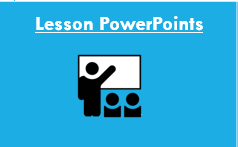
A whole-school program from P1 to S2, Bounce Back! provides students with practical strategies and life skills to handle challenges and adversity encountered. Subscription required
Set of resources and training for anyone involved in promoting and delivering emotional education in schools, nurseries and additional support services. Subscription required.
The ICE Pack- Knowing Me, Knowing You
The resource offers a combined social and emotional and skills development programme to support the delivery of a health and wellbeing curriculum. Through a whole school approach, the Knowing Me, Knowing You programme will support schools in building inclusiveness, health and wellbeing, active participation, citizenship and community thus developing the emotional and social attitudes and essential skills of children. Ages 3-12. Subscription required
Kitbag Resources (iffpraxis.com)
A set of resources to help develop our inner capacity for mindfulness, calm, resilience, compassion, relationship, reflection and so on – as individuals, in families, groups, teams and organisations.
Web-based bank of lesson plans and resources to support P4C. These resources require a subscription.
Web-based bank of lesson plans and resources to support P4C. Subscription required
Better Movers, Better TWeb-based bank of lesson plans and resources to support P4C.hinkers
Better Movers and Thinkers (BMT) is an approach to learning and teaching in physical education designed to develop the ability of all children and young people to move and think in a more cohesive way with a specific focus on developing, enhancing and fostering Executive Function (EF) skills within the learning process.
BBC Rodd’s Bad Day- Sleep is Important
Presenter Rodd helps us learn how lack of sleep affects how our brain works. Rodd is usually very organised but he is staying up too late playing computer games. The children help him realise how badly he is affected by the lack of sleep through playing a memory game. Rodd then goes off for a good night’s sleep and returns bright and cheery with a tidy house. He plays another memory game and is able to remember things much more clearly.
To play the first game you will need scissors, a pencil sharpener, rubber, apple and a lunchbox. For the second – scissors, a watch, a water bottle, pencil and sock are required.
A link to the lesson plans for Talk Pants and Stay Safe.
Place2Be has put together a series of resources focused on community recovery, to help headteachers and school staff start to bring their schools back together following recent challenging times. Drawing on themes including hope, gratitude and connectedness, these assembly and class activity ideas are intended as a universal resource for all children, and staff are invited to use them as starting points to promote emotional wellbeing and resilience for all.
This activity explores what happens when we sleep and why sleep is important for growth, development and good health and wellbeing.
This activity encourages children to develop good bedtime habits to help them get enough sleep. Children are asked to consider strategies which help them prepare to relax in order to fall asleep.
At times we experience loneliness or feelings of isolation. These activities will help children to reflect on why people are lonely at times and explore ways of dealing with this.
What To Do When I Feel Worried
For children and young people to manage their anxiety requires awareness and strategies. These activities will help children to reflect on why they are anxious at times and explore ways of dealing with this effectively.
We all experience sadness in our lives. These activities will help children to reflect on why people are sad at times and explore ways of dealing with this.
This activity supports children to understand why they sometimes feel nervous or anxious. The activity explores how they can find simple ways to cope with the emotional and physical symptoms they might experience as a result.
This activity supports children to understand why talking about feelings of anxiety or worry helps us all to cope with the emotional and physical symptoms we might experience as a result.
This activity supports children to consider what strategies they can use to help them to cope with worries, anxieties and when they might be nervous. This builds on previous activities and enables children to explore some simple techniques to support their mental wellbeing.



